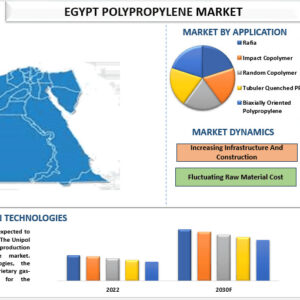According to TechSci Research report, “India Herbal Products Market – By Region, Competition, Forecast & Opportunities, 2019–2029F”, the India Herbal Products Market is expected to register steady growth during the forecast period. The market expansion is primarily driven by the rising consumer preference for chemical-free and plant-based products in personal care, healthcare, and wellness segments. Growing awareness about the side effects of synthetic ingredients and the increasing trust in Ayurveda and traditional Indian remedies are fueling demand across the country.
The herbal products industry in India is a perfect confluence of ancient Ayurvedic wisdom and modern consumer preferences. With India’s rich biodiversity and strong heritage in herbal medicine, the market offers immense potential for both established players and new entrants. Consumers are increasingly embracing natural formulations for skincare, haircare, wellness, and general health maintenance. As global interest in holistic wellness grows, India is emerging as one of the fastest-growing markets for herbal and Ayurvedic products.
Industry Overview
The India herbal products market encompasses a broad spectrum of categories, including herbal supplements, cosmetics, oils, teas, and powders, all derived from natural plant-based sources such as herbs, roots, fruits, and spices. These products are deeply rooted in traditional Indian healthcare practices and are gaining modern acceptance for their efficacy and minimal side effects.
Unlike synthetic products, herbal products are viewed as safer and more sustainable options. They not only address cosmetic and health concerns but also promote overall well-being by restoring balance between the body and mind — a concept deeply embedded in Ayurvedic philosophy.
The post-pandemic era has further accelerated the shift toward natural wellness and preventive healthcare. Consumers are more aware than ever of what goes into their daily products, preferring herbal formulations that are toxin-free, cruelty-free, and environmentally responsible. This shift represents not just a trend but a long-term movement toward holistic living and sustainable consumption.
Industry Key Highlights
-
Market Outlook: The India herbal products market is anticipated to witness substantial growth through 2029, supported by rising consumer awareness and innovation in herbal formulations.
-
Consumer Behavior: Increasing preference for herbal cosmetics and wellness products due to the harmful effects of chemical-based alternatives.
-
Dominant Segment: Personal care & cosmetics segment leads, followed by healthcare-based herbal supplements.
-
Top Drivers: Growing disposable income, awareness of Ayurveda, and rising online availability.
-
Emerging Trend: Surge in demand for eco-friendly packaging and clean-label herbal formulations.
-
Market Structure: Fragmented but rapidly consolidating, with both legacy brands and new-age startups gaining traction.
-
Digital Influence: Social media and influencer marketing play a major role in consumer education and brand trust.
-
Fastest-Growing Channel: Online retail and direct-to-consumer (D2C) platforms are revolutionizing accessibility.
-
Key Players: Patanjali, Dabur, Himalaya, Lotus Herbals, and Forest Essentials dominate market share.
-
Long-Term Potential: The market’s growth trajectory aligns with India’s evolving lifestyle patterns and rising health consciousness.
Download Free Sample Report – https://www.techsciresearch.com/sample-report.aspx?cid=4368
Market Dynamics
1. Market Drivers
a. Rising Awareness Toward Chemical-Free Living
With growing reports on the harmful effects of parabens, sulfates, and synthetic fragrances, Indian consumers are turning to safer alternatives. Herbal products are seen as trustworthy, offering effective solutions without toxic ingredients. This shift in mindset is one of the biggest catalysts for market expansion.
b. Revival of Ayurveda and Traditional Healing
Ayurveda has been the cornerstone of Indian wellness for centuries. Government initiatives such as the Ministry of AYUSH have revived public confidence in traditional medicine, fostering a favorable environment for herbal product growth across the healthcare, nutrition, and beauty segments.
c. Expanding Middle-Class Population
India’s rising middle-class population, coupled with growing disposable incomes, has increased the purchasing power for premium natural and organic products. Urban consumers, particularly women and millennials, are increasingly opting for herbal alternatives as part of their daily routines.
d. Digital Transformation and E-Commerce Penetration
The growing presence of e-commerce platforms such as Nykaa, Amazon, Flipkart, and specialty D2C websites has made herbal products easily accessible across urban and rural India. With doorstep delivery, discounts, and diverse product options, online retail has become the fastest-growing distribution channel.
e. Increasing Global Influence and Export Potential
Indian herbal products are gaining recognition globally for their authenticity and effectiveness. This global appreciation boosts domestic market confidence and opens up export opportunities for Indian brands.
2. Market Challenges
Despite strong growth potential, the industry faces a few challenges:
-
Regulatory Gaps: Absence of uniform regulations for labeling and standardization leads to consumer confusion.
-
Counterfeit Products: Market proliferation of substandard herbal goods can undermine consumer trust.
-
Price Sensitivity: Premium herbal formulations may remain inaccessible to lower-income consumers.
-
Limited R&D: Some companies underinvest in product innovation, relying heavily on traditional formulations without modern validation.
-
Awareness Divide: While urban consumers are well-informed, rural areas still require education about the benefits of herbal products.
Market Segmentation
By Category
The India herbal products market is segmented into personal care & cosmetics and healthcare.
-
Personal Care & Cosmetics: This segment dominates the market, driven by increasing demand for herbal shampoos, face washes, creams, and serums. Consumers value products offering benefits such as skin hydration, acne reduction, and anti-aging properties. Herbal cosmetics made from aloe vera, neem, turmeric, and sandalwood are among the most popular choices.
-
Healthcare Products: This category includes herbal supplements, immunity boosters, and natural remedies for common ailments. Post-pandemic, immunity-based herbal supplements like Ashwagandha and Giloy have seen exponential growth.
By Distribution Channel
The market is further divided into:
-
Traditional & Departmental Stores
-
Supermarkets/Hypermarkets
-
Multi-Branded Cosmetic Stores
-
Exclusive Stores
-
Medical Stores
-
Online
-
Others (Wholesalers, Direct Sales, Dealers & Distributors)
Online retail is emerging as the fastest-growing channel, owing to the convenience of doorstep delivery, digital discounts, and access to a wider product range. Traditional stores, however, continue to serve as vital touchpoints, especially in semi-urban and rural regions.
By Region
The India herbal products market is geographically segmented into North, South, East, and West India.
-
North India dominates due to the high concentration of established brands and distribution networks.
-
South India follows closely, with Kerala being a major hub for Ayurvedic product innovation.
-
Western India shows growing adoption in urban centers such as Mumbai and Pune, while Eastern India is witnessing rising consumer awareness and retail expansion.
Emerging Trends in the India Herbal Products Market
1. Clean Label and Transparency
Consumers now demand full transparency regarding ingredients, manufacturing processes, and sourcing. Brands promoting clean-label products — free from artificial fragrances, parabens, or preservatives — are gaining a strong competitive edge.
2. Sustainable Packaging
As environmental awareness grows, many brands are adopting eco-friendly packaging made from recyclable or biodegradable materials. This aligns with consumers’ preference for environmentally conscious products.
3. Male Grooming and Unisex Products
The herbal grooming space is expanding beyond women. Increasing numbers of men are adopting herbal hair and skincare products, leading to the launch of unisex formulations targeting beard care, hair fall, and acne treatment.
4. Fusion of Ayurveda with Modern Science
Manufacturers are blending traditional Ayurvedic principles with modern research and dermatological validation. This combination not only enhances credibility but also appeals to younger, science-driven consumers.
5. Influencer and Social Media Marketing
The digital revolution has enabled brands to reach audiences directly through influencer collaborations, product tutorials, and user-generated content. Social media platforms such as Instagram, YouTube, and Facebook have become key education and engagement channels.
6. Rising Demand for Customization
Consumers are seeking personalized solutions tailored to their skin or hair type. Brands are leveraging AI-driven skin diagnostics and online consultations to offer custom herbal product recommendations, enhancing customer satisfaction.
7. Focus on Wellness and Preventive Care
Beyond beauty, consumers are now embracing herbal products for holistic wellness. The demand for herbal teas, dietary supplements, and stress-relief products continues to grow as people seek natural ways to maintain mental and physical health.
Competitive Analysis
The India Herbal Products Market is highly competitive, featuring a mix of traditional Ayurvedic giants and modern herbal startups. Key players include:
-
Patanjali Ayurved Limited – A market leader revolutionizing the herbal space through its wide product portfolio and value-based pricing.
-
Dabur India Limited – A legacy brand with a strong heritage in Ayurvedic products, covering both healthcare and personal care categories.
-
The Himalaya Drug Company – Known for scientifically validated herbal solutions and extensive product innovation.
-
Amway India Enterprises Pvt. Ltd. – Offering globally recognized wellness and herbal nutrition products.
-
Lotus Herbals Pvt. Ltd. – A prominent name in herbal cosmetics with a focus on skincare and makeup.
-
Forest Essentials Emarketing Private Limited – A luxury Ayurveda brand known for its premium formulations and export quality.
-
VLCC Personal Care Limited – Expanding its presence in the herbal beauty and wellness sector.
-
Ayur Herbals Pvt. Ltd. – Offering affordable and effective herbal skincare solutions for mass consumers.
-
Organic India Pvt. Ltd. – Specializing in herbal teas, supplements, and lifestyle products.
-
Herbalife Nutrition Ltd. – Known for its nutrition-based herbal formulations and direct sales network.
These companies compete on parameters such as product innovation, ingredient authenticity, pricing strategy, and digital presence. Strategic collaborations, acquisitions, and portfolio diversification remain common tactics to maintain market leadership.
Future Outlook
The future of the India Herbal Products Market appears highly promising, driven by evolving consumer lifestyles and increasing global recognition of Ayurveda. By 2029, the market is expected to be more diversified, digitalized, and innovation-driven.
Key Future Growth Catalysts:
-
Personalized Herbal Care: Integration of AI and biotechnology for customized herbal solutions.
-
Export Expansion: Rising global demand for authentic Indian herbal brands.
-
Investment in R&D: Scientific validation and patent-based product innovation.
-
Mass Market Penetration: Affordable small-pack SKUs for rural and semi-urban consumers.
-
Sustainability Focus: Shift toward carbon-neutral production and zero-waste packaging.
As consumer trust strengthens and awareness expands, India’s herbal industry is set to become a global leader in natural wellness and beauty, blending age-old tradition with cutting-edge innovation.
10 Benefits of the Research Report
-
Comprehensive Market Overview: Detailed understanding of India’s herbal products ecosystem.
-
Reliable Forecast Data: Accurate estimation of market growth trends through 2029.
-
Segmental Analysis: Clear breakdown of market categories, distribution channels, and regions.
-
Competitive Benchmarking: Comparative insights on major players and their market strategies.
-
Consumer Insights: Deep dive into evolving preferences and lifestyle shifts shaping the market.
-
Emerging Trends Identification: Timely recognition of future growth areas and innovation opportunities.
-
Regulatory Framework Analysis: Overview of labeling standards, product approvals, and compliance norms.
-
Strategic Recommendations: Actionable guidance for investors, policymakers, and businesses.
-
Technological & Digital Trends: Coverage of D2C evolution, e-commerce, and influencer-led marketing.
-
Customization Option: Availability of tailored insights and regional analyses for targeted decisions.
The India Herbal Products Market represents the intersection of tradition, innovation, and sustainability. As Indian consumers continue to embrace wellness-centric lifestyles, herbal products are emerging as an integral part of daily life — from skincare and healthcare to nutrition and wellness.
With increasing government support, scientific validation, and strong brand competition, the market is set for continued expansion. Future growth will be defined by product authenticity, transparency, and digital engagement, as consumers increasingly choose brands that align with their values of health, purity, and sustainability.
In essence, the Indian herbal products market stands as a symbol of the country’s heritage reimagined for the modern world, offering not only beauty and wellness but also a deeper connection to nature and holistic living.
Contact
Mr. Ken Mathews
708 Third Avenue,
Manhattan, NY,
New York – 10017
Tel: +1-646-360-1656
Website: https://www.techsciresearch.com


